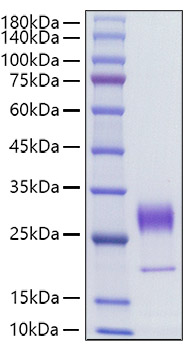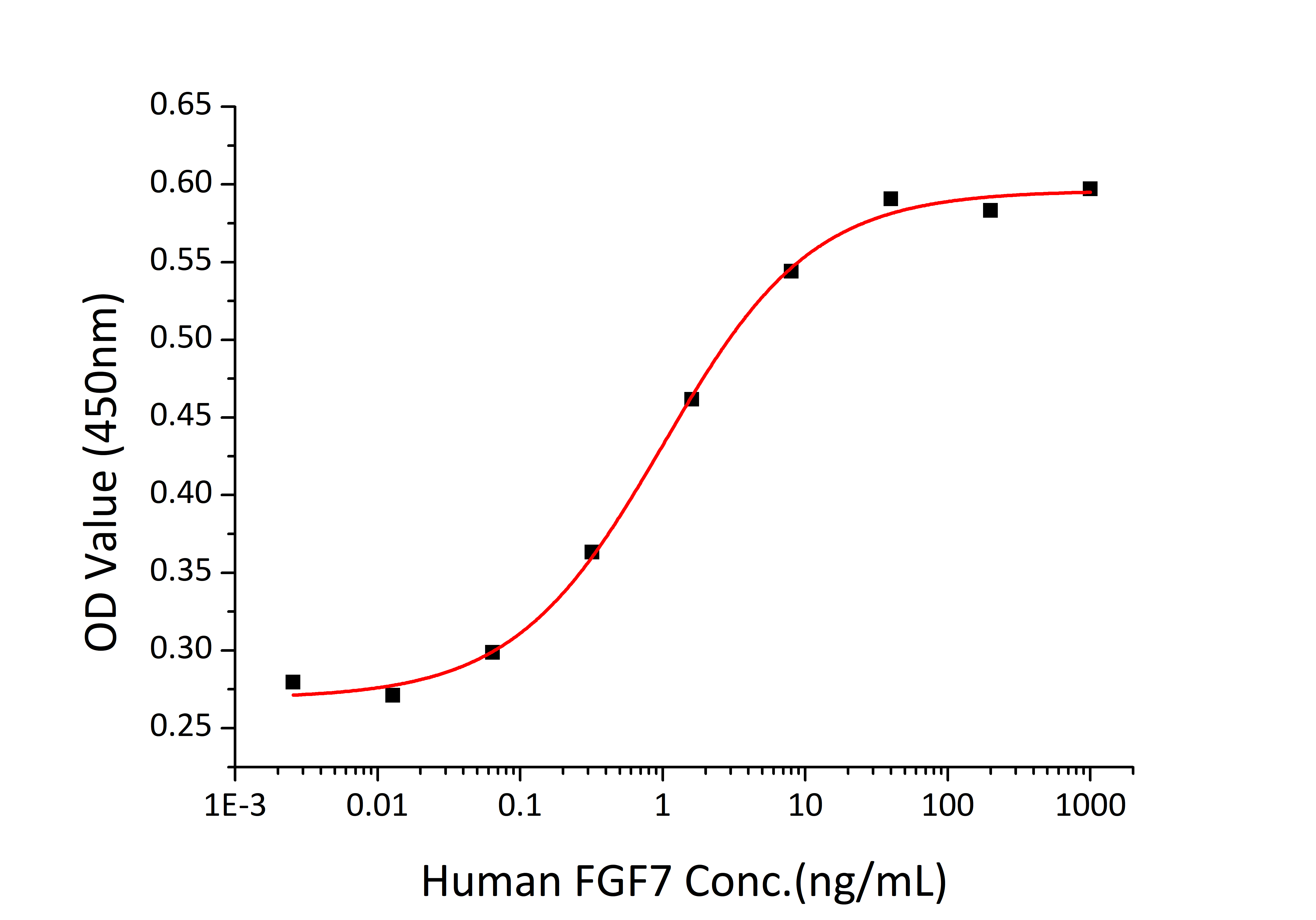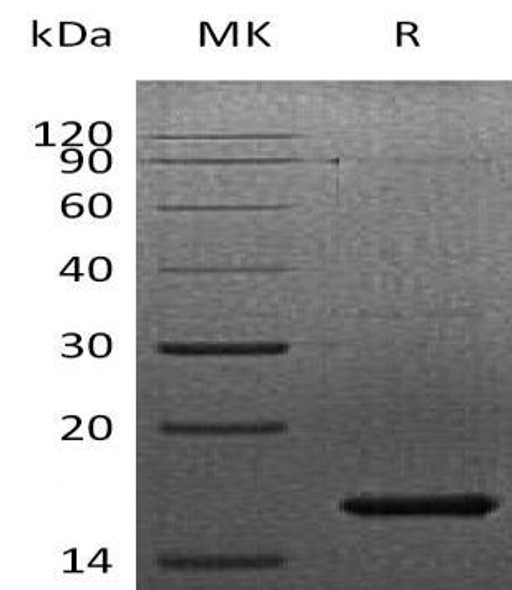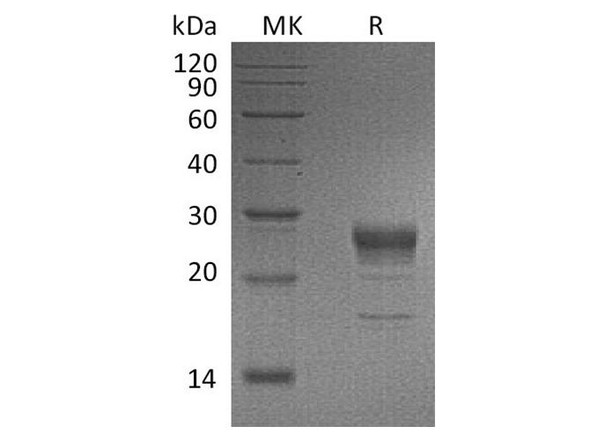Description
Recombinant Human FGF-7/HBGF-7/KGF Protein
The Recombinant Human FGF-7/HBGF-7/KGF Protein is a biologically active recombinant protein that plays a significant role in various cellular processes and signaling pathways in human biology. This protein is widely employed in immunological research, cell biology studies, protein-protein interaction analyses, and therapeutic development, providing researchers with a reliable tool for investigating FGF-7/HBGF-7/KGF function and its implications in health and disease.
This product (SKU: RPCB1793) is produced using HEK293 cells and features a C-6His tag for convenient detection and purification. The protein exhibits a calculated molecular weight of 19.72 kDa with an observed molecular weight of 15-25 kDa,26-30 kDa under denaturing conditions, achieving ≥ 90 % as determined by SDS-PAGE.. Functional bioactivity has been validated through rigorous quality control assays, confirming its suitability for demanding research applications.
Key Features
| High Purity by Affinity Chromatography | |
| Mammalian & Bacterial Expression Systems | |
| High lot-to-lot consistency via strict QC |
| Product Name: | Recombinant Human FGF-7/HBGF-7/KGF Protein |
| SKU: | RPCB1793 |
| Size: | 10 μg , 20 μg , 50 μg , 100 μg |
| Reactivity: | Human |
| Synonyms: | KGF, HBGF-7, FGF7 |
| Tag: | C-6His |
| Expression Host: | HEK293 cells |
| Calculated MW: | 19.72 kDa |
| Observed MW: | 15-25 kDa,26-30 kDa |
| Gene ID: | 2252 |
| Protein Description: | High quality, high purity and low endotoxin recombinant Recombinant Human FGF-7/HBGF-7/KGF Protein (RPCB1793), tested reactivity in HEK293 cells and has been validated in SDS-PAGE.100% guaranteed. |
| Endotoxin: | < 0.01 EU/μg of the protein by LAL method |
| Purity: | ≥ 90 % as determined by SDS-PAGE. |
| Formulation: | Lyophilized from a 0.22 μm filtered solution of PBS, pH 7.4. |
| Bio-Activity: | Measured in a cell proliferation assay using 4MBr‑5 rhesus monkey epithelial cells. The ED50 for this effect is 2.19-8.76 ng/mL, corresponding to a specific activity of 1.14×105~4.57×105 units/mg. |
| Reconstitution: | Centrifuge the vial before opening. Reconstitute to a concentration of 0.1-0.5 mg/mL in sterile distilled water. Avoid vortex or vigorously pipetting the protein. For long term storage, it is recommended to add a carrier protein or stablizer (e.g. 0.1% BSA, 5% HSA, 10% FBS or 5% Trehalose), and aliquot the reconstituted protein solution to minimize free-thaw cycles. |
| Storage: | Store at -20℃.Store the lyophilized protein at -20℃ to -80 ℃ up to 1 year from the date of receipt. After reconstitution, the protein solution is stable at -20℃ for 3 months, at 2-8℃ for up to 1 week. |
Fibroblast growth factor 7 (FGF7) is a member of the fibroblast growth factor (FGF) family of proteins. FGF7 plays an important role in regulating the proliferation, migration, and differentiation of cells. FGF7 is of stromal origin and produces a paracrine effect on epithelial cells. FGF7 is a mesenchyme-specific heparin-binding growth factor that binds FGF receptor 2 (FGFR2) to regulate numerous cellular and physiological processes. FGF7/FGFR2 promotes invasion and migration in human gastric cancer. FGF7 is specifically utilized as a paracrine factor during the process of differentiation of the epidermal layers in the regenerating scales and in particular for beta-cells differentiation. FGF7 over expression is associated with advanced clinical features in patients with upper tract and bladder urothelial carcinoma, justifying its potential prognostic value for urothelial carcinoma.








